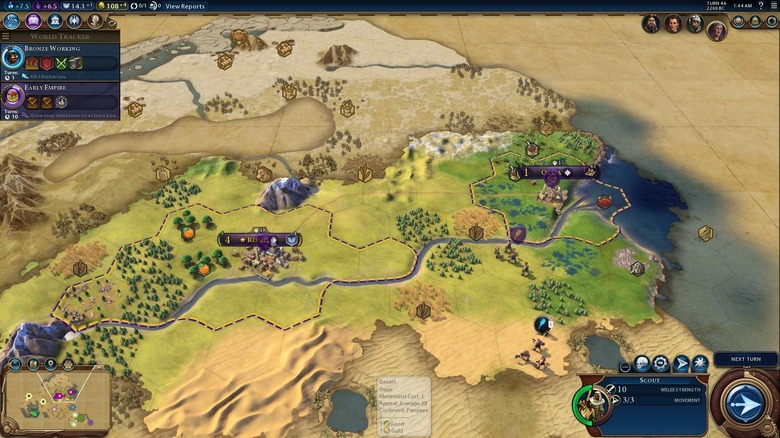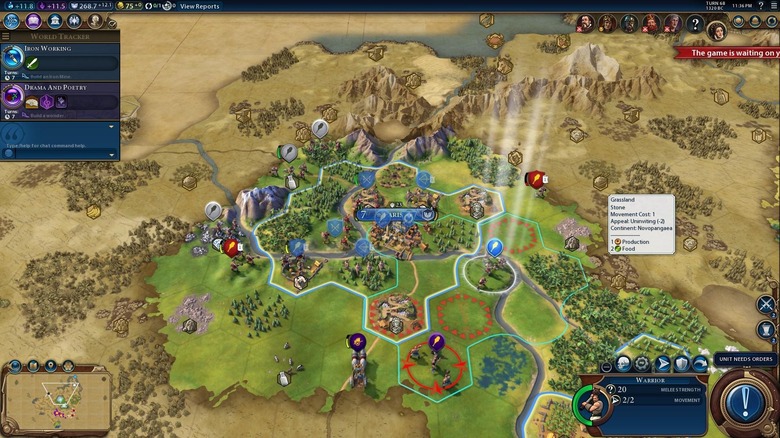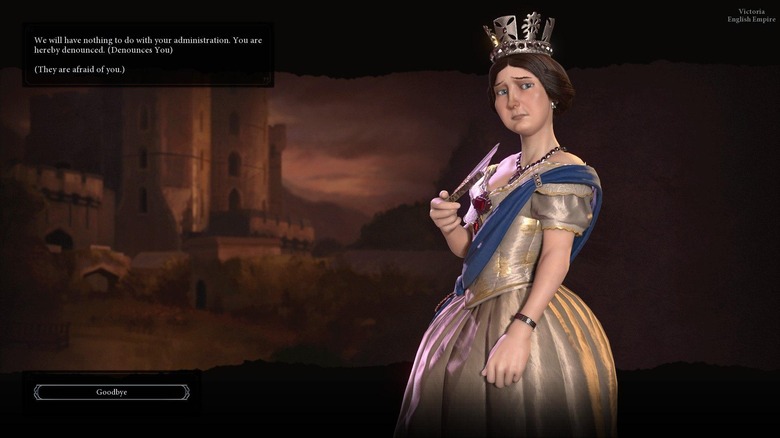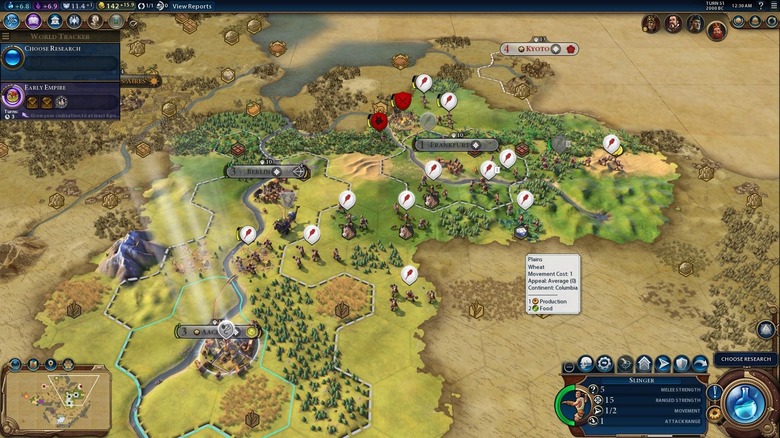The Best Games Of 2016: Civilization VI
We may receive a commission on purchases made from links.
The games in the Civilization series can be notoriously difficult to judge. There are so many working parts that the intricacies become overwhelming, and every time I try to describe one of the games to my friends, my explanation tends to collapse under its own weight. It doesn't help that all of the Civilization games thus far have been great, whether they're great at launch or they become great later on in life through expansions and DLC.Civilization VI is no different in this regard. I know that it's a good game, but how do you start explaining the finer points of a title as deep and time consuming as Civilization VI? Do you start small and talk about the interactions between individual cities and units, or do you zoom out and focus on the global conflicts that arise as each civilization moves through the ages?
This is something I continue to struggle with, even as I write this. I suppose the best way to start is with a claim that might spark a debate: Civilization VI proves once again that the turn-based strategy series is the best in its class. If you've never played a Civilization game but you like the strategy genre, you owe it to yourself to check it out, and Civilization VI is the perfect place to start.

Some will tell you that Civilization V in its current form – expansions and all – is better than Civilization VI. They're right in some sense. There are currently more civilizations to pick from in Civ V, along with more maps. Civilization VI also changes a lot of mechanics in a way that those who enjoyed Civilization V may not be comfortable with.
I would argue, on the other hand, that many of those changes are for the best. Your cities can no longer be these monolithic constructs that only take up a single tile on the world map. In Civilization VI, districts and wonders that give special bonuses need to built on the tiles surrounding your settlements, and since many of them have adjacency requirements, you'll need to actually put a fair amount of thought into how your expand your cities.

In my opinion, this is one of the best changes in Civilization VI. The number of districts you can have in each city is determined by their populations, meaning that at some point, it becomes advantageous to have cities specialize in something, whether it's the production of military units, scientific research, religion, or cultural pursuits. By the end of the game, you feel like you've constructed a true empire because your cities aren't just carbon copies of one another.
You now also have two "technology" trees to fill in, one for science and one for culture. Of course, the Civilization series has always offered a scientific technology tree, but this is the first time we've seen one for culture. Civilization V took the first step in this direction with its social policies, but in Civilization VI we see the idea become fully realized. It works out wonderfully too, because it means that science and culture share a similar structure that makes it easy to plot your plan of action.

I was also pleased to see that religion was given more importance in Civilization VI. Players can now pursue a religious victory in their games, converting the world to their founded religion before anyone else can pull out a win. It was a welcome addition to a religion mechanic that felt rather tacked on in Civilization V (mostly because it was, as Civ V didn't have religion until its Gods and Kings expansion).
Of course, the addictive gameplay that has been with the franchise since its inception is still present in Civilization VI. You're still vying for control of the world, whether that's through dominating your opponents with overwhelming military force, becoming a more scientifically advanced nation than any of the others, or turning your civilization into the cultural envy of the all the rest. Whatever changes may be present in Civilization VI take a backseat to the fact that it remains as fun and addictive as ever.
One of the things that makes Civilization VI so great is that I feel it's the most complete Civilization game we've received in years. Civilization V may be good now, but it's important to remember that it felt like a relatively bare-bones game at launch. Beyond Earth had some decent ideas, but it didn't take them far enough, and weird decisions with resource mechanics limited the number of options you had in each game.

Civilization VI suffers from neither of those problems. The base Civ VI experience has much of what was added to Civ V through expansions, which is a great thing indeed. You have much more freedom to choose your path to victory in Civilization VI than you did in Beyond Earth, which makes Civ VI a more fulfilling experience. Of the three Civilization games to come out in the last 10 years, Civilization VI is easily the most well-rounded of the bunch at launch.
That makes me excited for the future. If the majority of Civ V's expansion content is present in Civilization VI from the start, then I can't wait to see what developer Firaxis has in store for this game's expansions. Assuming they're as well-made as the base game is, then Civilization VI stands to become one of the best games ever created.
It's true that there are some flaws present in Civilization VI. It's not a perfect game and it never will be. However, an important question to ask is whether or not Civilization VI evokes the same "just five more minutes," feeling that its predecessors and other greats in the strategy genre do. For me, at least, Civilization VI absolutely does, and that's what makes it one of the best games of the year.
Throughout the month of December, we'll be highlighting some of the best games of the year here at SlashGear. The idea is not to eventually crown one as the best of them all, but rather to really dig into what makes these games so great. You can see previous articles in the series in the timeline below, and more are on the way, so stay tuned for the rest! If Civilization VI sounds like your kind of game, you can buy it now for PC.SlashGear uses Amazon affiliate links, and if you buy something we may get a small share of the sale.
